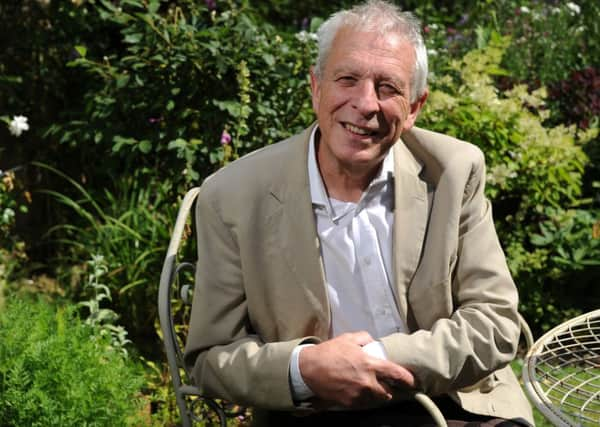‘I like to think that I’m offering something that is unforgettable’


Now aged, 70, a grandfather of four, and living on a pleasant housing estate in Tockwith near York, he also enjoys a thriving freelance career in writing, lecturing and broadcasting.
“Over the years I must have taken more than 1,000 weddings,” he recalls of his time as a vicar.
Advertisement
Hide AdAdvertisement
Hide Ad“But they were all different, I never get tired of doing them - every couple is unique. But one source of frustration was that I could only offer the service that the Church of England provided. If couples asked for certain things I had to say I couldn’t do them.
“Various friends who’d seen me in action asked me to marry them once I’d retired but that was only possible on a few occasions as, of course, the churches had new personnel. “It was around this time that a friend suggested I should consider being a civil celebrant.”
But it was a question from the broadcaster Aled Jones during an interview on Radio 2 one Sunday morning in 2009 that really started the ball rolling.
“I was on the programme to talk about my work as the chaplain to Yorkshire Television and my interest in film studies and Aled asked me what I would be doing once I’d given up the ministry. Without giving it much thought I just said I’d been thinking of working as a civil celebrant.
Advertisement
Hide AdAdvertisement
Hide Ad“I got a phone call the next day from a couple of doctors in Somerset and they asked me to meet with them. She was a Buddhist from Sri Lanka and they wanted a ceremony that would take into account their Buddhist and Christian backgrounds.
“In many ways I was ideally placed; although I’m not a Buddhist I’ve got a fair knowledge of Buddhism and certainly knew were to look to provide some input. They had their wedding in a country house hotel just outside Bath.”
Until 1995 there was little choice for those who eschewed a religious ceremony. It was a quick trip down to the local register office, 10 minutes in front of a registrar and then a few photographs on the steps while trying to dodge the next couple and their family.
But when the Marriage Act 1994 came into force, providing their strictly-implemented criteria were met, hotels, stately homes and civic halls could be utilised as wedding venues. More unusual licenced premises include an old swimming pool, shark aquarium, old warehouse and a whisky vault; getting married in a garden or a marquee though is out of the question.
Advertisement
Hide AdAdvertisement
Hide AdBut even with these concessions, the actual ceremony has to take place within a very rigid framework and couples find themselves having to compromise their ideal wedding to comply with the law. This is where the civil celebrant comes into their own.
Stephen is at pains to point out that he is no longer a ‘one stop shop’ as he was when he officiated at church weddings. “In a church, a vicar also acts as registrar but as a civil celebrant it’s not possible for me, or anyone else to do that,” he says.
“Couples have to do the legal bit at the Register Office or, if a registrar attends the wedding venue, there must be a clear differentiation between the two parts of the service.
“I conducted a wedding at Rudding Park, near Harrogate recently and the couple met with the registrar in one of rooms at the hotel and then they came over to the chapel in the grounds for the rest of the service. It was a really lovely day.”
Advertisement
Hide AdAdvertisement
Hide AdStephen has a warm engaging nature and exudes confidence and bonhomie in equal measures – ideal requisites for his chosen career. He adds: “Each service is bespoke and we can tailor-make it for each couple. Some couples want something fairly traditional, but on their terms not on someone else’s, and I occasionally get some people who want something a little bit different.
“They perhaps want to incorporate some activity or even some audience participation. I can do that. That what’s makes it interesting.” Although he hasn’t, as yet, been approached to conduct any same sex weddings he is happy to do so.
His own marriage to Margaret has lasted for 42 years and they have two children. The novelty of spending Sundays together has not diminished.
“It’s rather nice, for the first time in our married life we are sitting together most Sundays. I do take services occasionally but I’m a very happy member of the congregation as well. I don’t feel I have to be up there all the time leading them.”
Advertisement
Hide AdAdvertisement
Hide AdStephen has embraced modern technology in all its forms. He is currently involved in organising a wedding in Leicester with all negotiations conducted via email and Skype as the groom is in Australia and he is proficient in using Twitter and Facebook, has his own website and regularly updated blog.
He adds: “ I tell couples that it is their day and they want it commemorating joyfully – as do I. I like to think I’m offering something unique and unforgettable in addition to a basic registration of marriage and I keep talking to couples until we get everything right.”